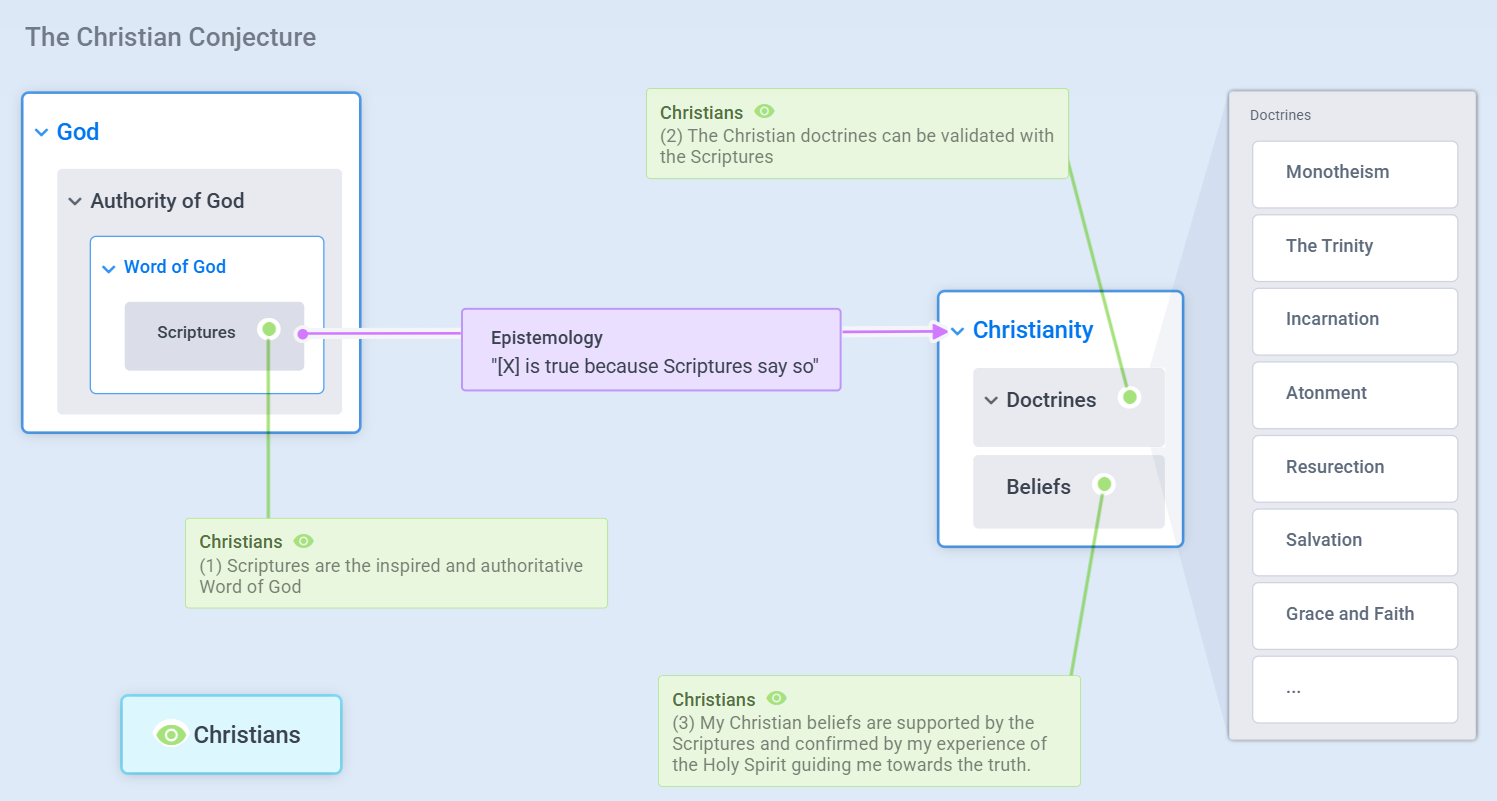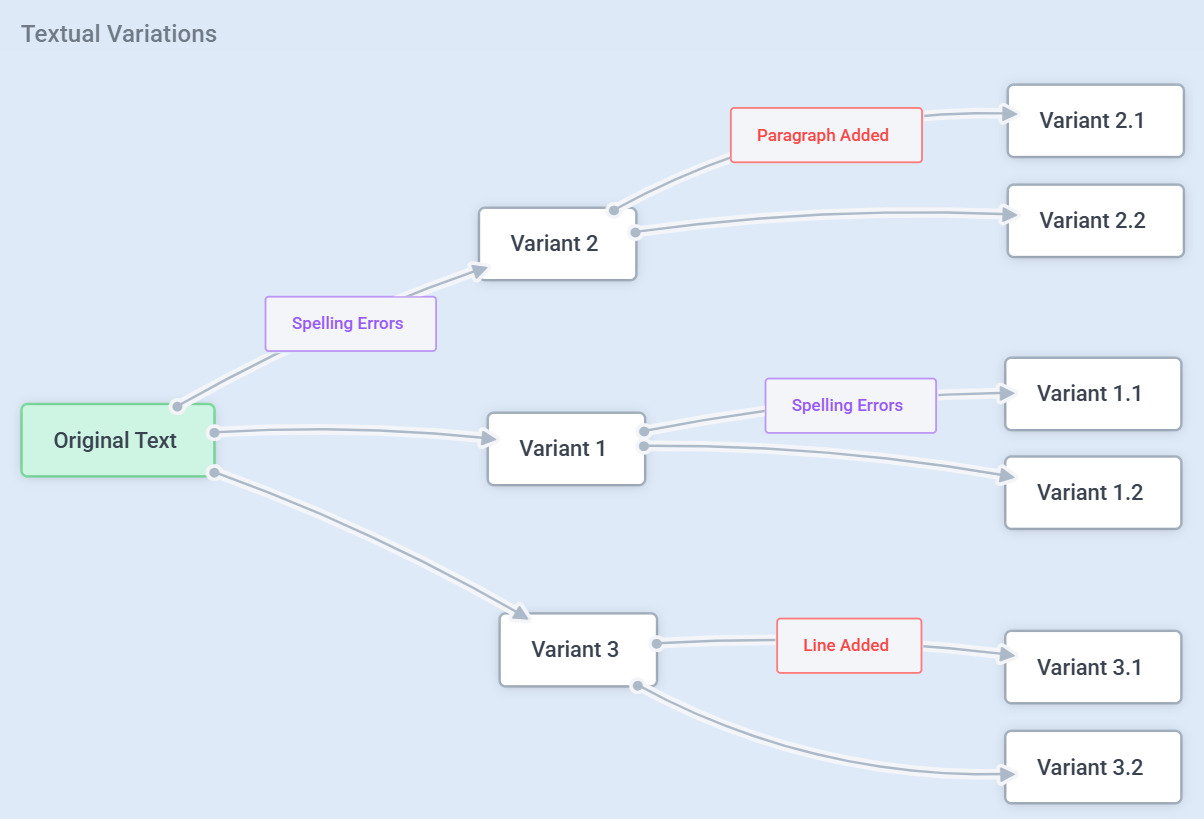
When the Word Must Be Proven: A Challenge to Christian Epistemology
28 Oct 2025Christians believe the Bible is the inspired and authoritative Word of God - the foundation on which their faith and doctrines rest. Over the centuries, however, scholars have identified thousands of variations in the surviving manuscripts. Most variants are minor; a smaller subset involves added or omitted lines and paragraphs.
To recover the earliest attainable form of the text, theologians, historians, and philologists use Textual Criticism - a scholarly method that compares manuscripts to determine which wording is most likely original and to understand why changes occurred.
The existence of significant variants raises a difficult question: How can anyone be certain that the Scriptures we read today are truly the Word of God? If the content of revelation itself must be reconstructed through human comparison and inference, then certainty about what God originally revealed becomes dependent on those human processes.
Among the available scholarly tools - historical study, archaeology, linguistic analysis - Textual Criticism remains the most systematic and widely accepted way to examine the textual foundations of Scripture.
Yet, as Jersey Flight argues, this reliance on scholarship and publicly assessable evidence introduces a paradox: if something external to the Word of God is required to verify it, then its claim to divine authority is placed in question.
The very act of appealing to evidence and human reason to confirm revelation suggests that, at least epistemically, revelation is not sufficient to confirm itself.
If one accepts Jersey’s argument, then it is not merely the authority of Scripture that stands in doubt, but the entire Christian edifice built upon it.
The Christian Conjecture
The following diagram depicts the principal elements of the Christian tradition, the connections between them, and the epistemic basis by which its truth-claims are understood:

The Scriptures are the central source of knowledge in Christianity. Christians regard them as the “Word of God” because they are believed to be divinely inspired, with human authors serving as instruments through whom God revealed His message.
In the Gospel of John, Jesus is described as the “Word” (Logos) who was with God in the beginning and who was God, making Him not merely a messenger but the living embodiment of divine revelation.
If the Scriptures are accepted as a valid way of knowing God’s revelation, they provide the principal foundation upon which Christian doctrine is built.
In Catholic and Orthodox traditions, this foundation is joined by Sacred Tradition and the Magisterium, which transmit and interpret revelation, while in Protestant traditions, Scripture alone holds ultimate authority for faith and doctrine.
Scripture Variants
The Scriptures we read today descend from a long chain of handwritten copies reaching back to the original texts.
Over centuries of transmission, scribes inevitably introduced errors.
The vast majority were minor - such as spelling or word order - but a smaller subset involved the addition or omission of words, phrases, or entire lines.
As a result, the biblical manuscript tradition contains hundreds of thousands of textual variants, ranging from trivial to significant.

Reconstructing Jersey Flight’s Deductive Argument
It makes no difference whether one is a Christian or a skeptic - Jersey Flight’s argument holds either way.
Nor does it depend on whether one believes that textual criticism, or any other scholarly method, has recovered a version of Scripture that is close enough to the original to be considered reliable.

-
Premise 1: The surviving manuscripts of Scripture contain numerous textual variants, including some that alter meaning.
-
Premise 2: Determining the earliest attainable form of the text requires external, evidence-based reasoning.
-
Premise 3: If the Word of God requires external validation to establish its content or authenticity, then it cannot serve as the highest authority.
-
Conclusion: Therefore, if the authority of Scripture depends on external methods for validation, that external standard becomes the higher authority, and the entire Christian edifice built upon Scripture’s supremacy is placed in question.
Illustrating Jersey Flight’s Argument in a Debate Format
The following illustrates how Flight’s Argument might be used in a debate:
-
Christian: The Bible is the Word of God. It reveals divine truth and teaches us how to live.
-
Skeptic: How do you know it is the Word of God?
-
Christian: Because it says so: “All Scripture is God-breathed.” (2 Timothy 3:16) It is inspired by God.
-
Skeptic: That is a circular claim. Every religion says the same about its own scriptures. What makes this one different?
-
Christian: We can rely on scholarship and history. The Bible has been preserved and studied carefully through centuries of transmission and verification.
-
Skeptic: Yet there are known textual differences in the manuscripts. Some verses were added or omitted, and a few affect the meaning of certain passages.
-
Christian: Those can be corrected through textual study. Scholars compare manuscripts and recover what the original text must have been.
-
Skeptic: But if scholars must determine which words belong to God, then the Bible’s authority ultimately depends on human judgment. It can no longer verify itself.
-
Christian: Faith still plays a role.
-
Skeptic: Once the Word of God requires human validation, it is no longer the highest authority. And if it is not the highest authority, then everything else in Christianity must also answer to evidence and human reason.